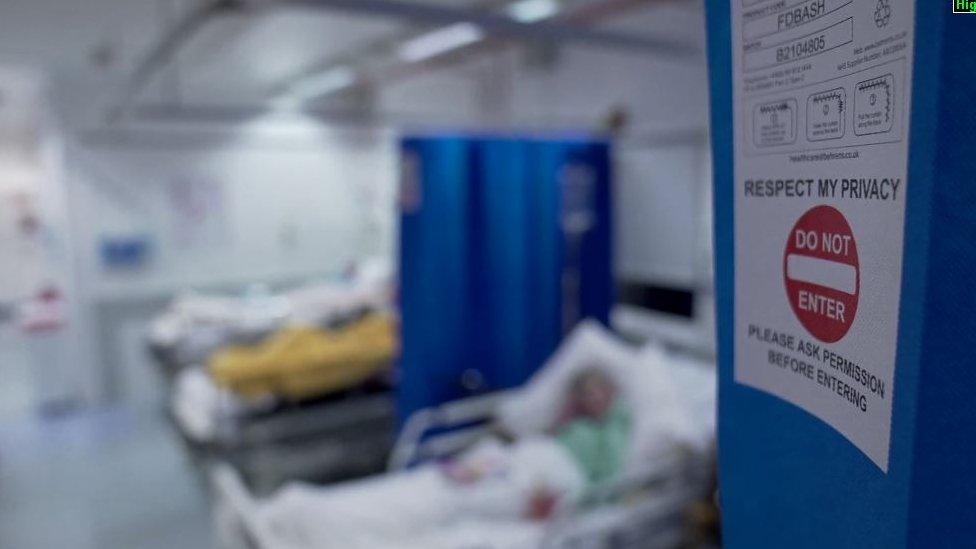Northern Ireland hospice care stories from families who needed help
- Published
Hospices in Northern Ireland: "The simple things really matter"
Over the past year the four main hospices in Northern Ireland have cared for almost 11,000 adults and 300 children.
They don't just provide end-of-life care. Hospices also support families living with illnesses on a long-term basis.
BBC Newsline's Sara Girvin has been speaking to some of those who have received that help.
'Our wee superstar'
Myah Laverty was born with complex medical needs.
At just three years old, she's already had four brain surgeries.
When hospice care was first suggested, her family was nervous.
Her mother Emma Morgan-Laverty said: "I have to be honest, my heart sank.
"For me, in that period in my life, I thought hospice was terminally-sick children and I was thinking the outlook here is really bad.
"We took a couple of weeks to think about it and talk about it.
"It's definitely easier to cope now because we know they're at the end of the phone and the big thing for us is they listen to us."
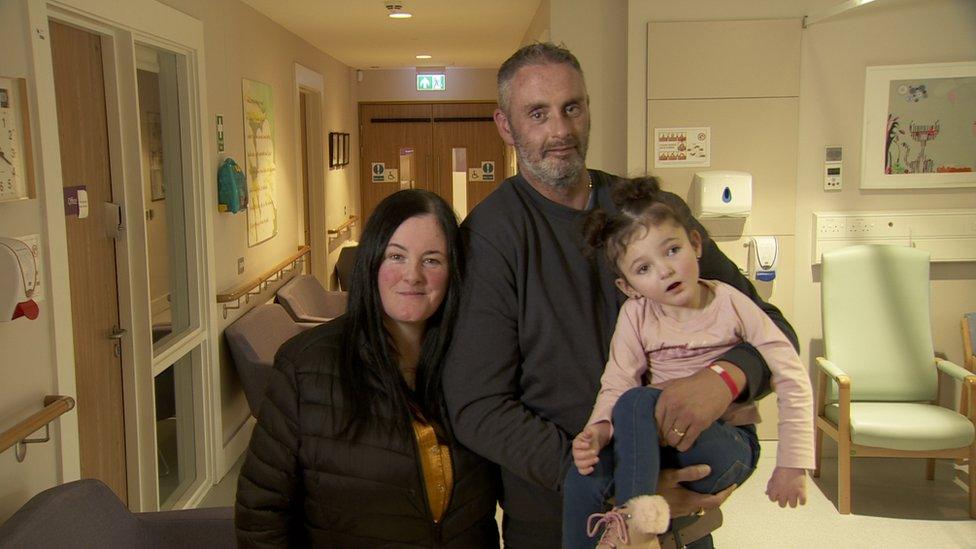
The Laverty family say the future feels a bit more clear with the support of a hospice
Myah's development has already surpassed expectations.
Emma said: "Myah is cheeky, she loves Abba, she'll sing, she'll dance, she's pulling herself up on the sofa, she calls me Emma - I don't even get mummy.
"She's starting to do things that we didn't even think she would be able to do in a lifetime.
"We call her the bionic baby.
"We know it's a tough road and it's going to continue to be a tough road but we're ready for it.
"The future feels a bit more clear now."
Myah dad Andrew Laverty said he could not be more proud of his daughter.
"She's our wee superstar.
"You never know what love really means until you have a child who needs all your love," he said.

'The simple things matter'
Alice Quinn's father Peter spent time in the Southern Area Hospice after being diagnosed with cancer.
"He was 60 when he passed away. He was a real hardworking, caring, really friendly man," she said.
Hospital restrictions at that time meant that one person could visit for one hour a day.
But because of the hospice garden, Alice and her family were able to spend precious time with Mr Quinn.
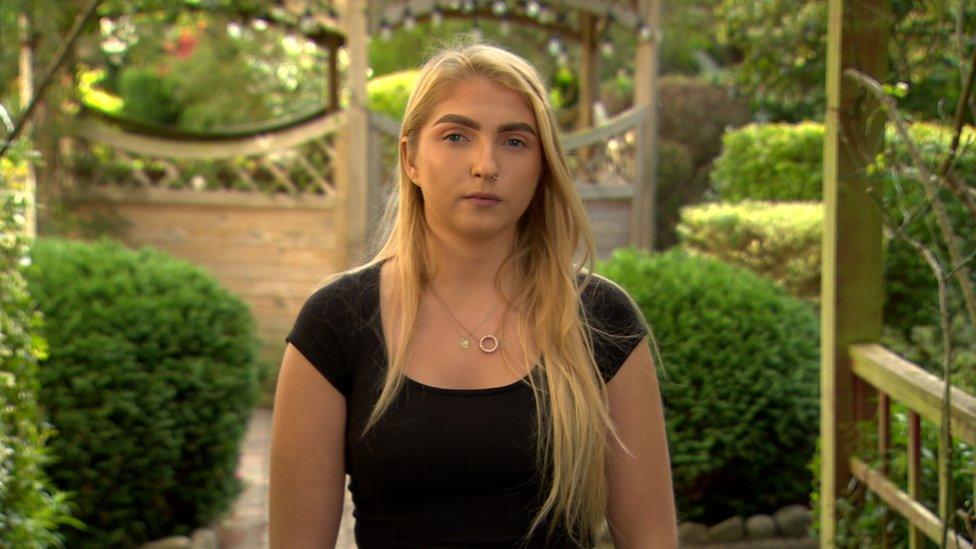
Alice Quinn says her family was glad to have the use of the hospice garden
"We were allowed to come up and see him and sit outside with him for hours at a time," she said.
"If they hadn't have been here I don't know what we would have done.
"The simple things are really the things that matter.
"The hospice is something you don't think you need until you need it."
Peter Quinn died at home in September 2020.

'That's how we remember him'
As Willie Mitchell's illness progressed, he told his family he wanted to die at home.
"He was quite a strict father because he had six daughters and two boys, but very much a family man.
"He was wild funny, jolly, told the silliest jokes - that's how we remember him," said his daughter Donna Chisholm.
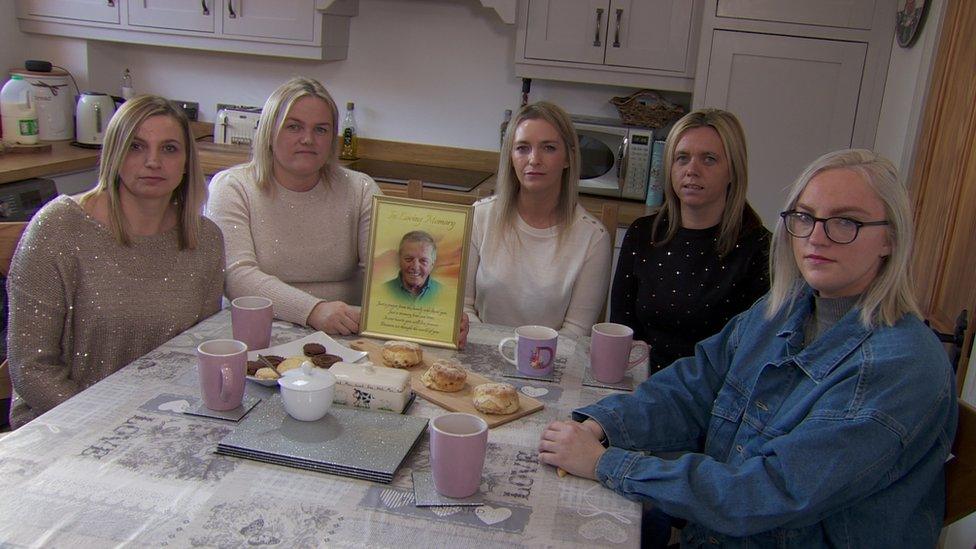
The Mitchell family say the chancer charity Marie Curie has helped to take a weight of their shoulders
The family all pitched in but as the only sibling still living at home, much fell to Mr Mitchell's youngest daughter Laura.
"The pressure might have been put more on Laura if Marie Curie [nurses] hadn't come to the house," said her sister Marian Gormley.
"The decision was taken to have them in the home so that she wouldn't have that pressure and it wouldn't all be put on her.
"Laura was with daddy, she saw the nose bleeds at three [o'clock] in the morning.
"She did a lot for him that wasn't seen."
Laura Mitchell said: "I couldn't have done without them, it was a weight off my shoulders.
"It was more relieving to know that I could actually spend more time just talking to him rather than helping him with his nosebleeds or giving him his medicine.
"I could just stay there and chat to him and hug him and stuff."
Willie Mitchell died at home last Christmas Day.

'My little Earth angel'
Liz Kane has been living with ovarian cancer since 2017.
It has since spread.
"It's in my kidneys now and my pelvis," she said.
"I got good news - for the first time in four-and-a-half-years my kidney function is normal so I'm so pleased, I'm over the moon."
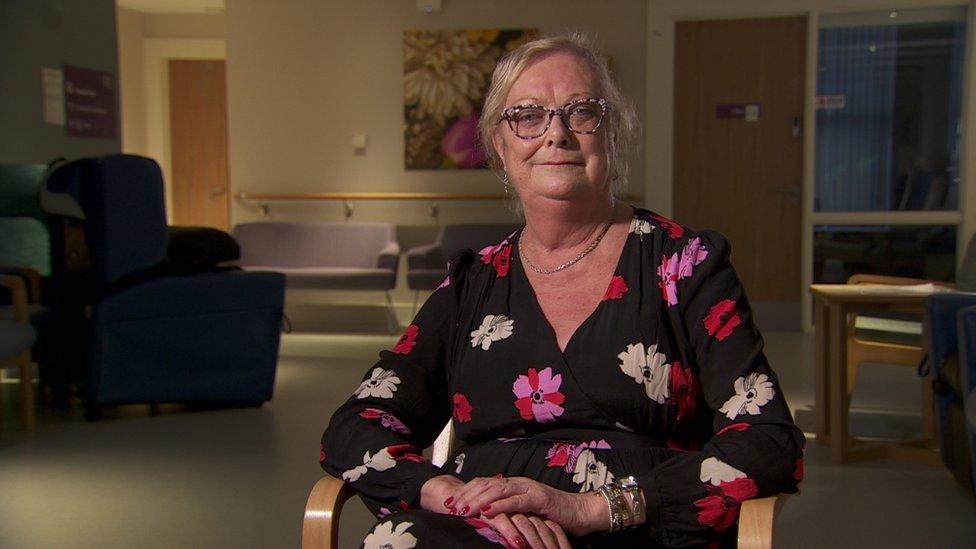
Liz Kane calls her hospice nurse her "little Earth angel"
When hospice care was suggested to Liz at the start of the pandemic, she was unsure.
"I thought: 'Oh my goodness, I'm terminal. I'm on my road out, that's it.'
"I thought once you go into a hospice you don't come out again because you're dying - I think a lot of people think that," she said.
"I thought about it and thought about it and thought: 'What have I got to lose?'
"My hospice nurse has been coming to me for a year and a half, I call her my little earth angel.
"I would actually class her as a friend now, I wouldn't be without her."
Like many others, Liz felt isolated during lockdown.
She said: "If I was having a bad day, in tears, I would talk to my nurse and by the end of the call I would be smiling.
"I take each day as a bonus - the more time I have, the more time I have to spend with my family, who I love dearly.
"I don't want any more scans or anything because I really don't see the point.
"I know what's happening with my body, I know when there's something wrong.
"I'm just grateful to be here and that's about the height of it.
"My mantra is: what doesn't kill you makes you stronger."
Related topics
- Published7 December 2021
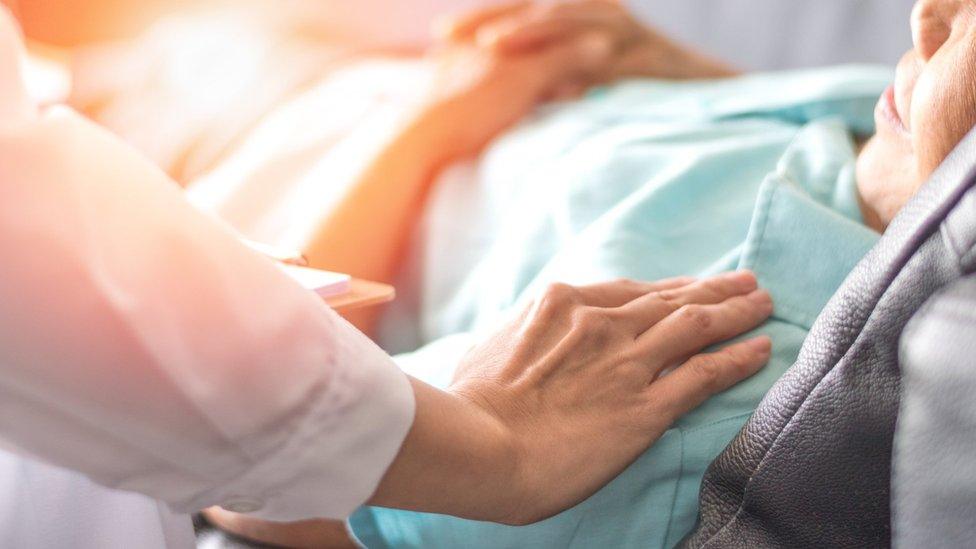
- Published20 October 2021
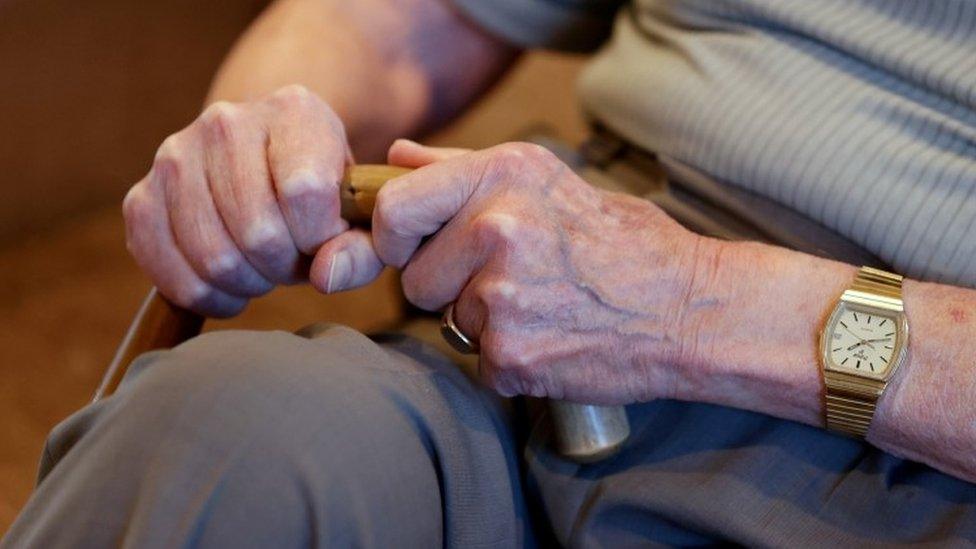
- Published28 November 2021
